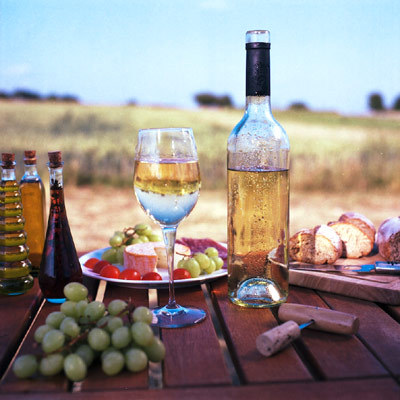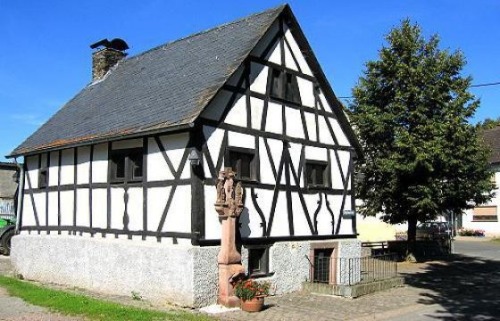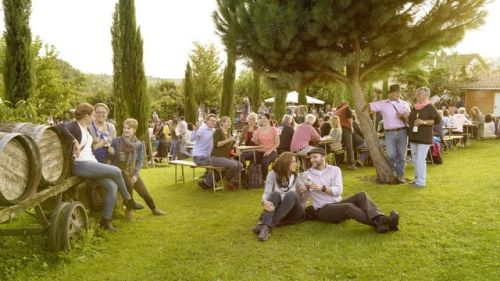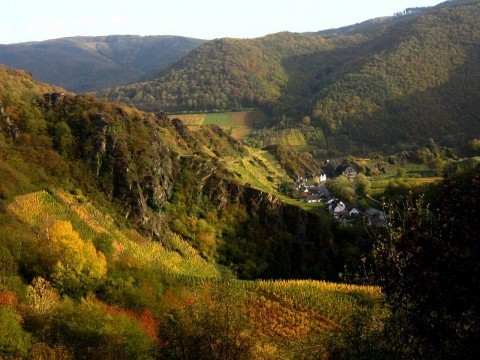#langblrgang
hey! ive been active here before, but never really introduced myself, so here you go!
basics
im enfys seren toive, 20, german native, university student (studying finnish and scandinavian studies along with dapping into some other stuff in the general studies field)
languages im learning
are finnish, swedish, danish, and esperanto! along with some slight dabbing into some other languages
i want to
become a translator/interpreter once im finished with university!
hello hello! if youre focusing on any of the languages im studying, feel free to lmk! i need to follow more blogs

Sivu yksi ja takakansi - page one and the back cover - Seite eins und die Rückseite
merkillinen - weird, strange - komisch, seltsam, merkwürdig
luonnonilmiö - natural phenomenon - Naturerscheinung, Naturereignis
tulkita - translate, interpret, explain - dolmetschen, erklären, interpretieren
tuho - downfall, ruin, doom - Untergang, Verderben, Ruin, Vernichtung
merkki - sign; stamp; utterance, expression - Zeichen; Briefmarke; Äußerung
kaukainen - far away - fern
tähtitorni - observatory - Sternwarte
selvä - bright; clear; clean - hell; deutlich; sauber
omituinen - specific; weird; curious, odd - eigentümlich; spezifisch; seltsam
pyrstötähti - comet - Komet
-> pyrstö - tail (as in a horse’s tail, an animal’s tail) - Schweif, Schwanz
liittyä - to belong to something; to join - sich jmd. anschließen; zu etw. gehören
neuvokas - perceptive, smart, innovative - erfinderisch, scharfsinnig, klug
viehättävä - delighting, enchanting; charming - begeisternd, entzückend; charmant
-> viehättää - delight, enchant - entzücken; begeistern, hinreißen
taival - distance - Strecke, Entfernung
edetä - get ahead, keep on going - weiter gehen, vorwärts kommen
huima - wild, untamed - unbändig, ungestüm, wild
seikkailu - adventure - Abenteuer
varoittaa - warn smb. from smth. - jmd. vor etw. warnen
vaarallinen - dangerous - gefährlich
syöksyä - fall - stürzen, fallen
uhkaava - threatening - drohend, bedrohlich
-> uhata - threaten - jmd. (be)drohen
kohti + Partitiivi - towards smth. - auf etw. zu
jolloin - where; whem; as, when - wo; wann; als, da
vievä - time-consuming - zeitraubend
saada valmiksi - to finish smth., get done with smth. - etw. zu Ende bringen, mit etw. fertig werden
otus - animal; beast - Tier; Biest; Vieh
keksiä - make up, discover - erfinden, entdecken
kummallinen - weird, strange - komisch, seltsam, merkwürdig
eräs - one - ein, eine, eins
aivan - entirely - ganz, genau, völlig
painua - sink; give in; boost smth. - sinken, untergehen; nachgeben; antreiben
tutkia - investigate smth. - etw. untersuchen, etw. erkunden
uskaltaa - dare - wagen, den Mut haben, sich trauen
varjoinen - shady (as in, a shady place, not a shady person) - schattig
panna - put - setzen, stellen, legen
oksa - branch - Ast
risti - cross - Kreuz
loikkia - jump, walk with big steps - springen, mit großen Schritten laufen
käpälä - paw - Pfote, Tatze
täynnä - full of - voll, voller
niitty - meadow - Wiese
Genetiivi + halki - across - über, durch, quer durch
virrata - flow - strömen, fließen, rinnen
kaartaa - bend - biegen, krümmen
kattaa - cover; encompass - decken; umfassen, beinhalten
seutu - area, region, surrounding - Gegend, Region, Umgebung
ihmetellä - wonder, admire - sich wundern, staunen, etw. bewundern
mahtaa - may, must - dürfen, mögen, werden, müssen
ihmeellinen - weird, strange; phenomenal - komisch, seltsam; phänomenal
miettiä - to think about smth. - an etw. denken, über etw. nachdenken
NOTE: I translated the words into German first, then into English, so the German translations are betterthan the English ones!
NOTE 2: etw. - etwas; jmd. - jemanden; jemandem; jemand

Cowboys
nouns
derCowboy- the cowboy
dasCowgirl- the cowgirl
dasPferd- the horse
dieFarm- the farm
dieRanch- the ranch
derBauernhof- the farm (however this has less of a cowboy connotation and is moreso a farm in general)
derCowboyhut- the cowboy hat
dieCowboystiefel(Sg. der Cowboystiefel) - the cowboy boots
derSattel- the saddle
der Wilde Westen - the wild west
dasLasso- the lasso
dieKuh- the cow
der Stier- the bull
derIndianer/dieIndianerin- the native american
adjectives
wild- wild
frei- free
verbs
reiten- to ride (only with horses and other animals)
hüten- to herd
galoppieren- to gallop
das Lasso schwingen- to wield the lasso

Sternzeichen- zodiac signs
♈ - Widder (ram) means Aries
♉ - Stier (bull) means Taurus
♊ - Zwilling(e) (twins) means Gemini
♋ - Krebs (word for both cancer and crayfish) means Cancer
♌ - Löwe (lion) means Leo
♍ - Jungfrau (virgin, in old times used to refer to young women) means Virgo
♎ - Waage (scales) means Libra
♏ - Skorpion (scorpion) means Scorpio
♐ -Schütze (this nowadays refers mainly to people with guns, but in old times referred to people shooting with bow and arrow) means Sagittarius
♑ - Steinbock (ibex, apparently. it’s an animal) means Capricorn
♒ - Wassermann (literally translated: water man) means Aquarius
♓ - Fische (fish, plural) means Pisces
language (dialect) moodboard: Moselfränkisch
“Ein Reisebuch aus dem Jahre 1840 beschreibt das Moselfränkische in der Stadt Trier so: „Die Sprache hat in ihrer volltönenden Breite etwas ungemein treuherziges und gemüthliches“.”
this is my native dialect!
Post link

Valentinstag
nouns
derLiebesbrief- the love letter
dasGeschenk- the gift/present
diePralinen- the chocolates (a box of chocolates, mainly)
ein hoffnungsloser Romantiker - a hopeless romantic (m)
einehoffnungslose Romantikerin - a hopeless romantic (f)
dasDate- the date (romantic meeting)
derFlirt- the flirt (is mainly used to refer to a person you are flirting with)
dasKino- the cinema
derHeiratsantrag- the (marriage) proposal
dieVerlobung- the engagement
dieHochzeit- the wedding (ceremony)
dieEhe- the marriage
adjectives
romantisch- romantic
süß- cute, sweet (can be used to describe foods and people)
heiß- hot (for weather and people)
perfekt- perfect
atemlos- breathless, out of breath
verliebt- in love
verbs
lieben- to love
flirten- to flirt
mitjemandemausgehen- to go out with someone
jemandendaten- do date someone
einen Liebesbrief schreiben- to write a love letter
jemandenausführen- to invite someone out (this has a rather formal connotation, you wouldn’t say “ich führe dich zum Döneressen aus”, however “ich führe dich zum Dinner aus” is very much okay. things like the cinema probably depend on the person)
jemandemschmeicheln- to flatter someone
sichverloben- to get engaged
There are two kinds of objects in Finnish, partitiiviobjektitandtotaaliobjektit
partitive objects occur if the sentence is negative, irresultative, after numbers other than 1, if the word is an ainesana or if you are talking about an undecided amount of something
they are, as the name says, in partitive (either singular or plural)
totaaliobjektit occur if you are talking about a specific thing rather than the thing in general (luen kirjettä vs luen kirjeen - i read any letter vs i read the letter (in one sitting))
totaaliobjektit can either look like the genetiivi yksikkö or like the nominatiivi monikko, and pronouns take a certain form if they are a totaaliobjekti (the akkusatiivi)
Some prepositions alwaystake the partitiivi following them. Some of them are
monta
pari
vähän
puoli
paljon
ennen
NOTE: The difference between monta and paljon is that paljon can occur with both ainesanat andother words, whereas monta can neveroccur with ainesanat. So you can say paljon ruokaa (ruoka = ainesana) and paljon omenoita, but you cannot say monta ruokaa, only monta omenaa, which is the same as paljon omenoita. So monta + partitive singular is the same as paljon + partitive plural
Ainesanat are, easily explained, words that cannot be counted or arent usually counted. My Finnish teacher called them substance words, because they describe a substance rather than the single parts of which said substance is made up of
examples would be hiekka (sand), ruoka (food), maito (milk), and also things like omena (apple).
the difference between, for example, paljon omenaa and paljon omenoita is that in the first sentence, you treat apple as a substance (eg. there is a lot of apple in the cake), and in the second you treat apples as countable pieces (eg. i have to buy a lot of apples)
ainesanat always are a partitive singularobject
some words are only ever ainesanat, whereas others can be both ainesanat and totaaliobjektit. generally, if you wouldn’t count the thing you are referring to you use partitive singular, as the word is an ainesana then
Partitiivi yksikkö
The partitive occurs after numbers (that arent 1), after negative sentences, after certain words, after so called ainesanat, if the amount is undetermined and if an action is irresultative.
The partitive singular is formed in three ways:
if the word ends in a singel vowel or ia, eA: A
(ihanaa, sataa, sotaa)
if the word ends in two vowels or a consonant: tA
(maata, puhelinta, lasta)
if the word ends in e: ttA
(meretta, hernettä, huonetta)
NOTE:A stands for a/ä, depending on Vowel Harmony
NOTE 2: The partitive can be formed with either the nominative form or the stemof the word, you have to learn it with each word
NOTE 3: There are some negative sentences which do nottake the partitive (words that don’t follow in partitive after possessive constructions: nälkä, jano, kiire, kuuma, kylmä, hiki, hyvä/huono olo)
Verbityyppi 5
Here the infinitive marker is -ta/-tä, if the vowel before the marker is an i. The t stays, but is followed by -se- and the personal ending.
häiritä
- häiritsen - häiritsemme
- häiritset - häiritsette
- häiritsee - häiritsevät
tarvita
- tarvitsen - tarvitsemme
- tarvitset - tarvitsette
- tarvitsee - tarvitsevat
lukita
- lukitsen - lukitsemme
- lukitset - lukitsette
- lukitsee - lukitsevat
NOTE:I am leaving out hän (3.ps. sg) and he (3.ps. pl) here, but in written/spoken Finnish there needs to be a subject going with the third person (both singular & plural)









